
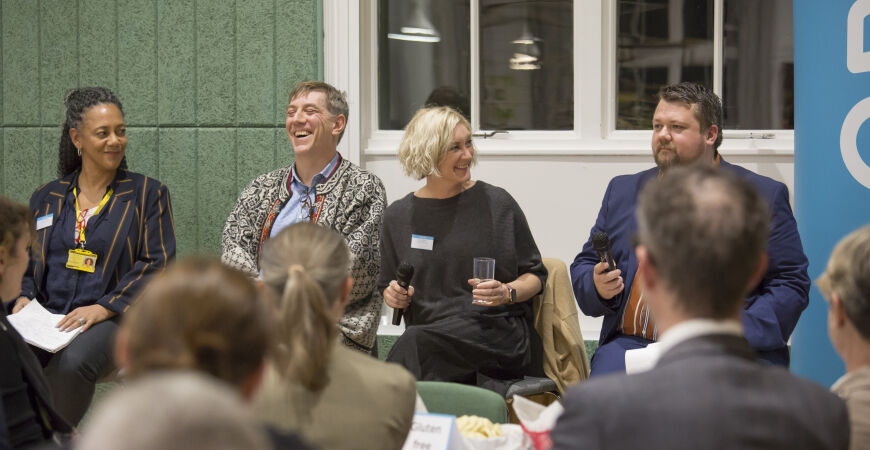
Thu 24 / 11 / 22
The Big Debate: Where have all the people gone?
Hannah Jackson, Membership & Marketing Manager at Brighton Chamber, writes up some of the key themes and takeaways from the Big Debate – and what panellists and businesses think we should be doing next.
By Hannah Jackson of Brighton Chamber
Where have all the people gone? It was a broad topic up for discussion at our Big Debate on 16 November at Brighton Girls, exploring the world of recruitment, employability, and the challenges we face.
So why is it a hot topic?
Richard Freeman, Chair for the debate and CEO of always possible, prefaced the discussion by talking about the clear consensus from businesses that they can’t find the staff they need. Attracting and retaining the right talent at the right time, at the right price, is difficult.
Although it’s not just a Brighton thing, our city has a mix of high-end knowledge and tech-based roles, a large hospitality sector requiring volume, combined with what Richard coins Brighton’s ‘endless pursuit of youth’ - making a challenging landscape.
So how can we find a way through, share innovation, knowledge, and carve a new pathway? Our four panellists helped us navigate some of the answers, with facilitated discussion in breakout groups to find out what Brighton businesses think.
We heard from:
- Vicky Haines, MD of Kingsway Care
- Lucy Smith, Founder of Digital Grads
- Nye Comminetti, Senior Economist at Resolution Foundation
- Eric Kihlstrom, UK Ambassador for Aging2.0
Here are some of the key themes and takeaways from the Big Debate – and what panellists and businesses think we should be doing next.
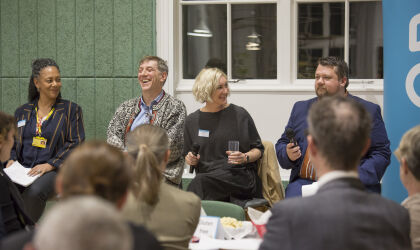

Quiet Quitting isn’t happening
Richard kicked off the debate asking Nye Comminetti about the current climate for recruitment and employment right now, and what the numbers are saying on things like the new Quiet Quitting phenomenon. Is it just an easy hashtag? According to Nye, there’s no proof in the statistics.
Although the labour market is tight, unemployment is currently low at 1.2 million vacancies in the UK. And despite being slightly higher than pre-pandemic numbers (currently at 0.5% below 2019), it’s never been easier to get a job.
But there’s high turnover, with people moving from job to job. Nye says this has combined with an increase of 500,000 people aged 50 and leaving the UK workforce. People aren’t quietly quitting, they're moving jobs or quitting altogether.
We need a new model for a changing population
So why are people over 50 leaving, and what can we do about it? Eric Kihlstrom points to agism as the main reason this group are leaving the workforce.
Although this doesn’t mean they don’t want to work. Over 50s are just like under 50s – they’re looking to find purpose at work. But there are now over 1 million people who are involuntarily at home, unemployed because of agism.
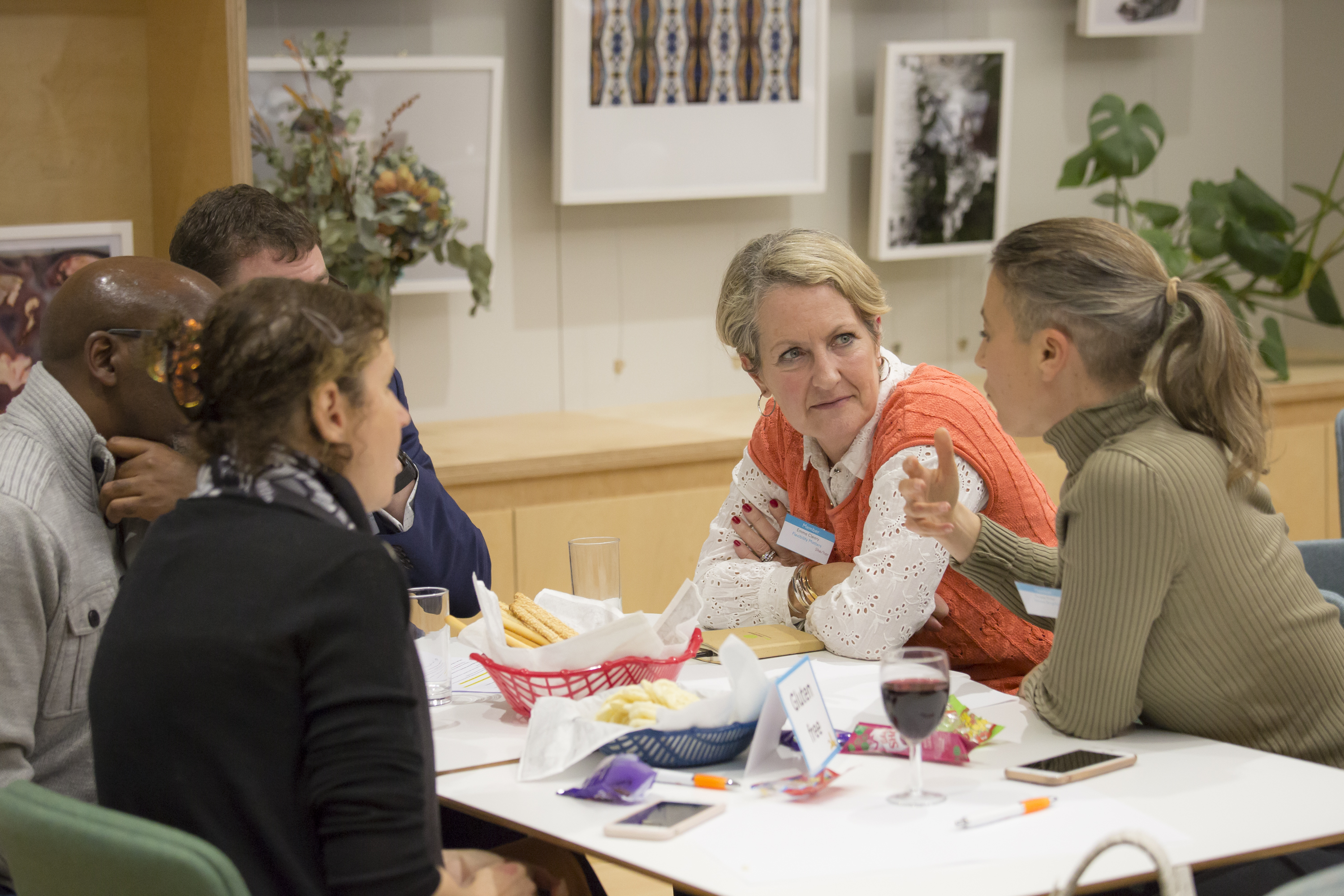
An age diverse workforce is a more productive workforce, so Eric calls for us to forget what we’ve learned about aging and retiring, and instead think in terms of life transitions. He says employers need to look at things differently and support people through these transitions - the model from our parents’ and grandparents’ generation doesn’t work anymore, because we’ll live longer, so now it’s up to us to create a new model. We’re depriving people of purpose because culture hasn’t caught up with science.
Lucy Smith called for a need to rebrand 'graduate' jobs to 'entry-level', as these include graduates, school leavers, career changers and returners – not just young people leaving university Nicolette Wykeman, Silverforce Coaching agreed in feedback from her breakout group, which said that agism is the last ‘ism’ to be addressed in equality, diversity and inclusion.
Are Gen Z as demanding as we think they are?
So, what about the younger generation? With news and headlines claiming Gen Z are the most demanding generation yet, Richard asked Lucy Smith, Founder of Digital Grads – a training and recruitment platform for graduates, if they’re as demanding as we think they are.
Lucy disagrees – when it comes to benefits, if you can afford things like a four day week, you should offer it but there are plenty of other aspects that people look at when they’re looking for a role. It can be hard to compete with London salaries, but there are plenty of young people who are looking hard for work, and want good work.
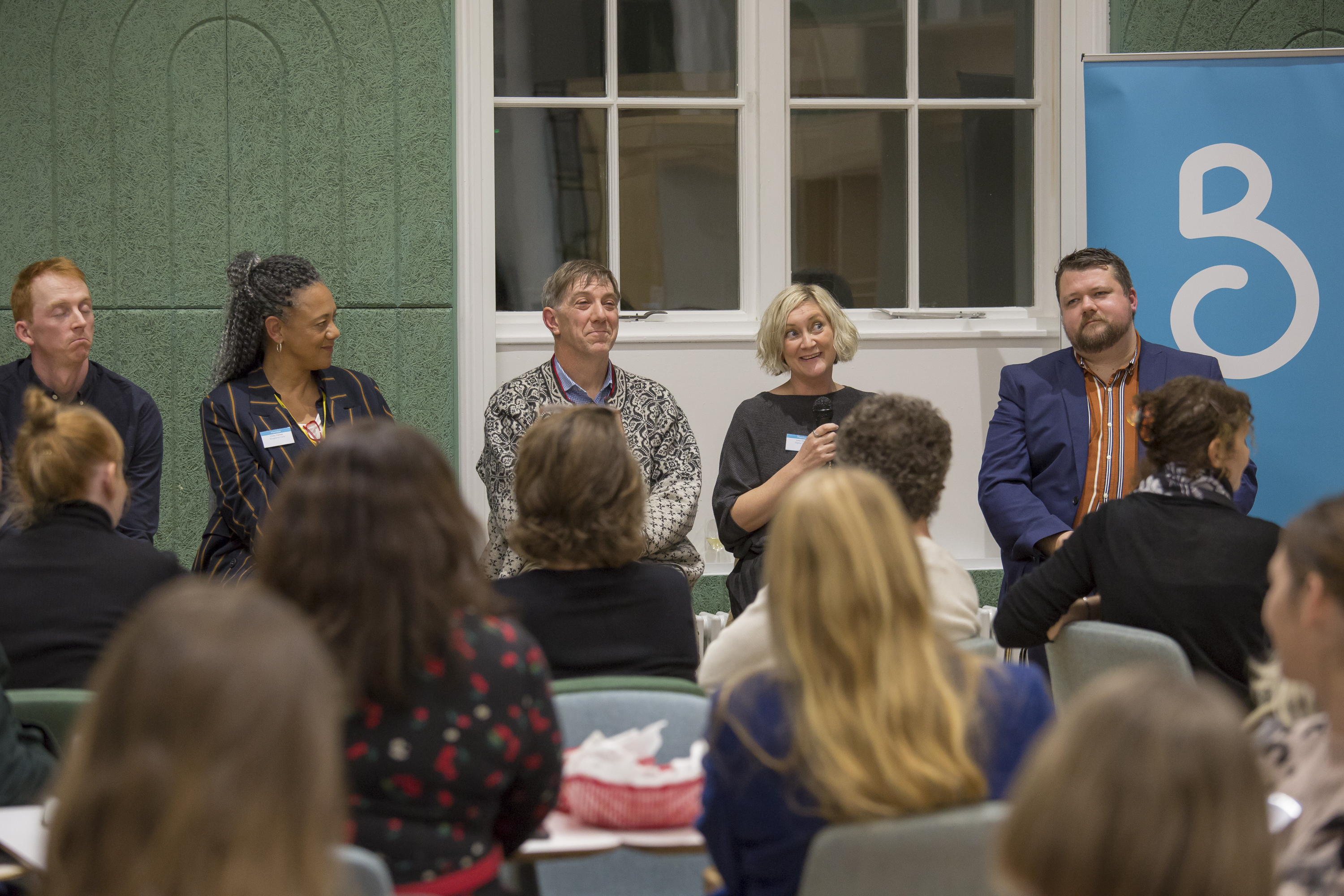
The panel agreed that businesses will need to be pragmatic to get the best talent. There are two ways to compete with the large London salaries. Widen your talent pool, giving someone a chance who might not look like your perfect candidate on paper (do you really need a university degree?) Or, compete harder by being prepared to pay more, and create a more attractive benefits package - that's where being able to offer flexible working or a four day week, which can offer more work life balance - can play a crucial role in attracting talent.
It’s about employee empowerment and thinking differently. Eric Kihlstrom called for reverse mentoring, young people sharing digital skills and the older generation teaching experience.
People don’t leave companies, they leave managers – make them feel valued
One sector that has had perennial challenges finding talent is care. Vicky Haines, MD at independent homecare provider Kingsway Care, said that unfilled vacancies isn’t new for them, but the pandemic and labour shortage hasn’t helped.
What’s needed is a change in perception about the sector. Care is seen as an unskilled stopgap, so until social care jobs are taken seriously, we’re going to continue having this problem. Vicky also pointed to lots of over 50s leaving the care sector to care for children or elderly parents because (ironically) there isn’t enough social care.
Kingsway’s solution is to make people in the care sector feel more valued. Value the skill, knowledge, motivation and commitment needed in the jobs – plus investing in training and a good salary. As employers we also need to recognise what people in our teams have going on outside of work, and what support we can give to them.
Sandra Murphy's (1626 Ltd) breakout group agreed that people don’t leave businesses, they leave bad managers. People need to believe they’re making a difference, feel supported, have purpose, and balance.
Stop making assumptions
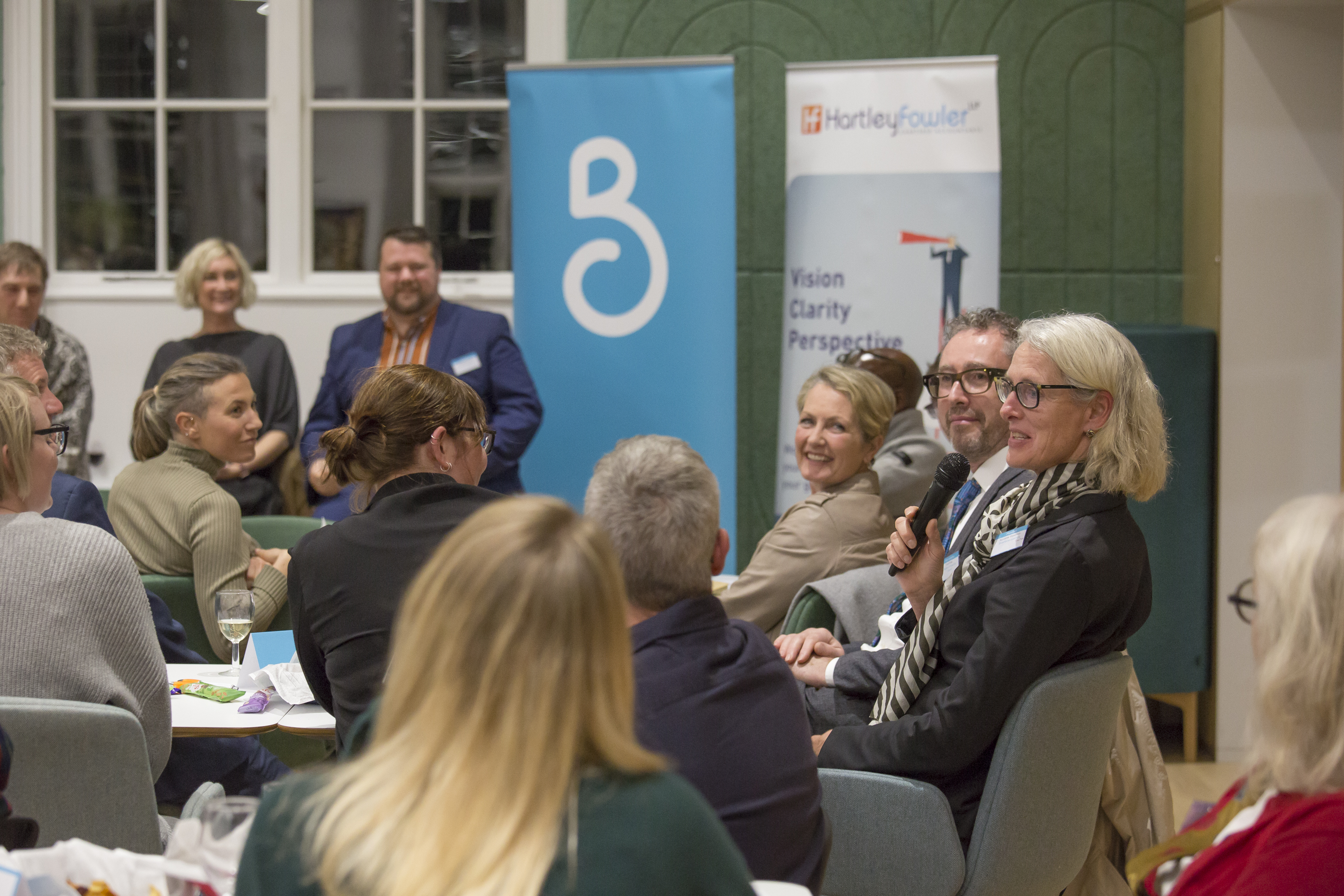
One of the questions asked in our breakout groups was “Are traditional recruitment methods fit for purpose?” Don’t assume one size fits all when it comes to job applications and interviews was the overarching conclusion from the groups, expertly facilitated by Helen Vane and Mo Kanjilal. Give people a choice about how they present their skills and experience, us technology wisely but don’t assume it’s going to always give you the best candidates.
On traditional assumptions about a higher salary determining whether or not to take a job, or stay in one, Vicky Haines referenced a trial in the Netherlands. A study was undertaken where employees’ pay was doubled in response, people said they wanted to go part time – so we can’t always assume that people need more money, they might want more time to have a better balance
In closing
Richard summarised some of the pertinent takeaways for the businesses, charities and public sector staff in the room. The overriding message is that employers shouldn’t take things for granted. What's worked for the past 20 years won’t work now and traditional assumptions need to be more actively challenged. We, as organisations, will need to be more creative and strategic in future approaches to recruitment and retention if we’re going to succeed.
Let’s do better when it comes to our equal opportunities and access to everybody. Although this is a debate – it sounded like we are in agreement on that!
Hannah Jackson is Membership & Marketing Manager at Brighton Chamber. Find out more about previous Big Debates and topics here.
Brilliant event photos by Beth Wild photography. See all the photos from this Big Debate here.
With thanks to our event sponsor, Hartley Fowler. And with thanks to our event partner, Silicon Brighton.
For this and more events, head over to the Chamber events page:
If you want to contribute to the Chamber blog, contact us on hannah@brightonchamber.co.uk



